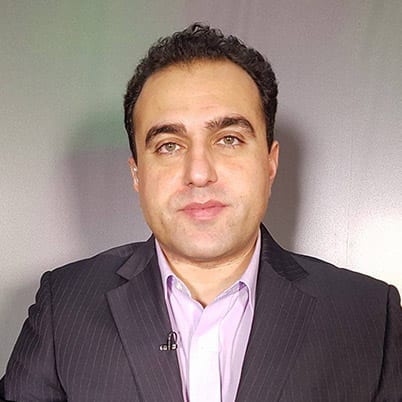The visit to Moscow last week by Iranian president Hassan Rouhani has been widely interpreted in the West as the latest sign of strengthening ties between the two states.
Whilst Rouhani’s two-day visit was dominated by trade and economics, in particular Russian investment in the Iranian energy sector, Syria and wider regional issues were undoubtedly high on the agenda.
Military cooperation, in particular long-anticipated Russian arms sales, were also likely the subject of discussion between Rouhani and his Russian counterpart, Vladimir Putin. According to some reports, Russia is considering arms sales to Iran to the tune of $10 billion. However, as of now there has been no official confirmation of new arms sales agreements.
But beyond the headlines the relationship between Russia and Iran is dogged by complexity and mutual distrust. Whilst in strategic terms the two states see eye to eye on some issues, on other issues their views and desired outcomes diverge, not least in Syria where they are both ostensibly fighting on the same side.
Uneasy relationship
Increasingly, Russian-Iranian relations are described as a strategic alliance in the Western media and even specialist publications. However, strictly speaking, Iran is not in any formal alliance with Russia. Indeed, the Islamic Republic has only one formal ally and that’s the Syrian Arab Republic.
Moreover, the Islamic Republic’s constitution militates against entering into alliances with superior powers. At a practical level, Iranian foreign policy since 1979 has involved developing strong ties with similar sized or preferably weaker states (as in the case of Syria) and even non-state actors, whilst at the same time deploying balance of power strategies to keep stronger states at bay.
![A Russian Sukhoi Su-34 striking an enemy position in Aleppo, Syria [Mil.ru/Middle East Monitor]](https://i0.wp.com/www.middleeastmonitor.com/wp-content/uploads/2016/11/2015_10_9-Russian-air-strike.jpg?resize=500%2C333&ssl=1)
A Russian Sukhoi Su-34 striking targets in Aleppo, Syria [Mil.ru/Middle East Monitor]
More recently the Islamic Republic of Iran maintained uneasy relations with the former Soviet Union, in part to compensate for complete loss of ties with the United States. This qualified reaching out to the former Soviet Union can be viewed as a balance of power exercise – and in part a correction of the pre-revolutionary policy of alignment with the United States.
Following the demise of the Soviet Union in late 1991, Russian-Iranian relations steadily improved and under President Putin they have been at their warmest for decades if not centuries. Iran and Russia have shared views and interests on a range of regional issues, including the smouldering conflict in Nagorno-Karabakh, formalising the legal status of the Caspian Sea and strengthening bilateral energy sector cooperation.
Above all Iran and Russia share a world view of opposition to the global hegemony of the United States, in part based on values, but more importantly on the basis of restoring regional stability on more favourable terms and conditions. Signs of the beginning of an American withdrawal from the Middle East have prompted greater Russian-Iranian cooperation in the region, notably in Syria where their intervention saved the Syrian state from almost certain collapse.
Divergent outcomes
Unprecedented levels of Russian-Iranian cooperation notwithstanding, it is important not to over-state the significance of this relationship or what can be expected from it in the short to medium terms. Iran and Russia are not on a trajectory of ever greater alignment on the international stage. Historical, ideological and pragmatic factors all militate against this outcome.
Take Syria as an example. Ostensibly the two powers are on the same side, both determined to shore up the embattled Syrian regime by weakening, and if possible, destroying the opposition groups and jihadists mobilised against it. This convergence of views and interests was sufficiently strong for Iran to go to the unprecedented step of allowing Russian warplanes to use an Iranian air base as a staging post for bombing runs on Syria-based targets.
![Images of an Israeli drone which was downed by the Assad regime in Syria [C_Military1/Twitter]](https://i0.wp.com/www.middleeastmonitor.com/wp-content/uploads/2017/03/Israeli_Drone_Syria5.png?resize=500%2C289&ssl=1)
Images of an Israeli drone which was downed by the Assad regime in Syria [C_Military1/Twitter]
More broadly, Iranian and Russian views on the desired outcome to the Syrian conflict are diverging, as evidenced by Russia’s increasing propensity to use its superior diplomatic status to support Western efforts at containing the conflict. The power disparity in relation to exiting the Syria conflict was highlighted by Mostafa Zahrani, one of the directors of the Institute for Political and International Studies, the think tank arm of the Iranian foreign ministry.
Iran and Russia may be friends and even uneasy partners on key regional issues but allies they will never be.
The views expressed in this article belong to the author and do not necessarily reflect the editorial policy of Middle East Monitor.

![Image of Russian President Vladimir Putin (L) and Iranian President Hassan Rouhani (R) during a joint press conference in Moscow, Russia on 28 March 2017 [Alexei Nikolsky/Anadolu]](https://i0.wp.com/www.middleeastmonitor.com/wp-content/uploads/2017/03/2017_3_28-Iranian-President-Hassan-Rouhani-in-Moscow.jpg?fit=920%2C613&ssl=1)







